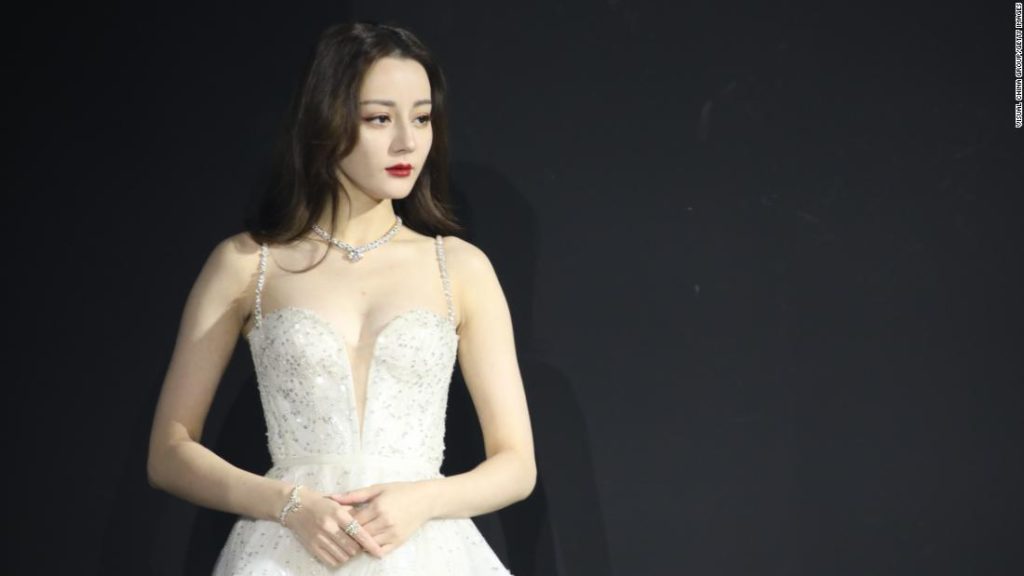Chinese celebrities are finding it increasingly difficult to stay out of politics.
Due to China’s tight restrictions on free speech, most of the country’s stars have been outwardly apolitical by default. But as China embraces a new wave of apparent nationalism — promoted by the ruling Communist Party and amplified by state media — it seems staying silent is no longer a viable option.
Over the past two days, Chinese actors, singers and models have spoken up en masse to defend Beijing’s policy on Xinjiang, as a nationalist-fueled backlash erupted against some international clothing brands for expressing concerns over allegations of forced labor, and refusing to use cotton produced in the western region.
Recent sanctions from the United States and other Western countries over Xinjiang have sparked a renewed pushback from the Chinese government, which calls the camps “vocational training centers” designed to combat terrorism and religious extremism. China has repeatedly and vehemently denied accusations of forced labor in the camps.
In December, the US government said it would block imports of cotton produced in Xinjiang over concerns it “may have been made by slave labor in some of the most egregious human rights violations existing today.”

Actor Wang Yibo performs on stage on November 2, 2019 in the Chinese city of Nanjing. Credit: Visual China Group/Getty Images
The collective support from celebrities is just the latest example of the role they are expected to play in an ever more nationalistic China — that of vocal defenders of the country’s actions, even if it means sacrificing their own business opportunities.
While some of them are more than happy to speak out, either because of their genuine support for the government or the pragmatic belief that doing so could benefit their careers, others simply cannot afford to stay silent under intense online pressure and public scrutiny.
‘A nation’s dignity is not to be violated’

People walk by the flagship store of clothing brand H&M at a shopping area on March 25, 2021 in Beijing, China. Credit: Kevin Frayer/Getty Images
Actor Huang Xuan, who had been a brand ambassador for H&M since last April, announced soon after that he would no longer work with the company. Another H&M ambassador, Song Qian, followed with a similar announcement.
“Our agency and Mr. Wang resolutely resist any remark and action that smears China. A nation’s dignity is not to be violated. (We) resolutely safeguard the motherland’s interest,” the statement said.
Throughout Thursday, more and more celebrities followed suit, cutting ties with fashion brands linked to the Better Cotton Initiative, a non-profit group based in Geneva and London, that promotes sustainable cotton production, which said in October it was suspending its approval of cotton sourced from Xinjiang, citing human rights concerns.
Political liability
Partnering with famous Western brands has long been a coveted business opportunity — they can be lucrative and help Chinese celebrities gain international clout. For the brands themselves, tapping into the world’s largest luxury market via stars with followings in the millions, is good for business.
But in recent years, these seemingly innocuous deals come with greater risk for stars.
Amid the outrage that followed, two of D&G’s Asia Pacific brand ambassadors, singer and actor Wang Junkai and actress Dilraba Dilmurat, terminated their contracts with the luxury label.
Following the uproar, a slew of Chinese celebrities, including model Liu Wen and actress Yang Mi, quickly cut ties with the fashion brands.
In other instances, Chinese stars have been affected by politics as a result of direct orders from the Chinese government.
In 2019, China’s film regulator blocked the mainland’s movie industry from participating in Taiwan’s Golden Horse awards, dubbed the “Chinese-language Oscars,” amid rising tensions between Beijing and the self-ruled democratic island.
CNN has reached out to international brands named in the article for comment.
You may also like
-
Afghanistan: Civilian casualties hit record high amid US withdrawal, UN says
-
How Taiwan is trying to defend against a cyber ‘World War III’
-
Pandemic travel news this week: Quarantine escapes and airplane disguises
-
Why would anyone trust Brexit Britain again?
-
Black fungus: A second crisis is killing survivors of India’s worst Covid wave

